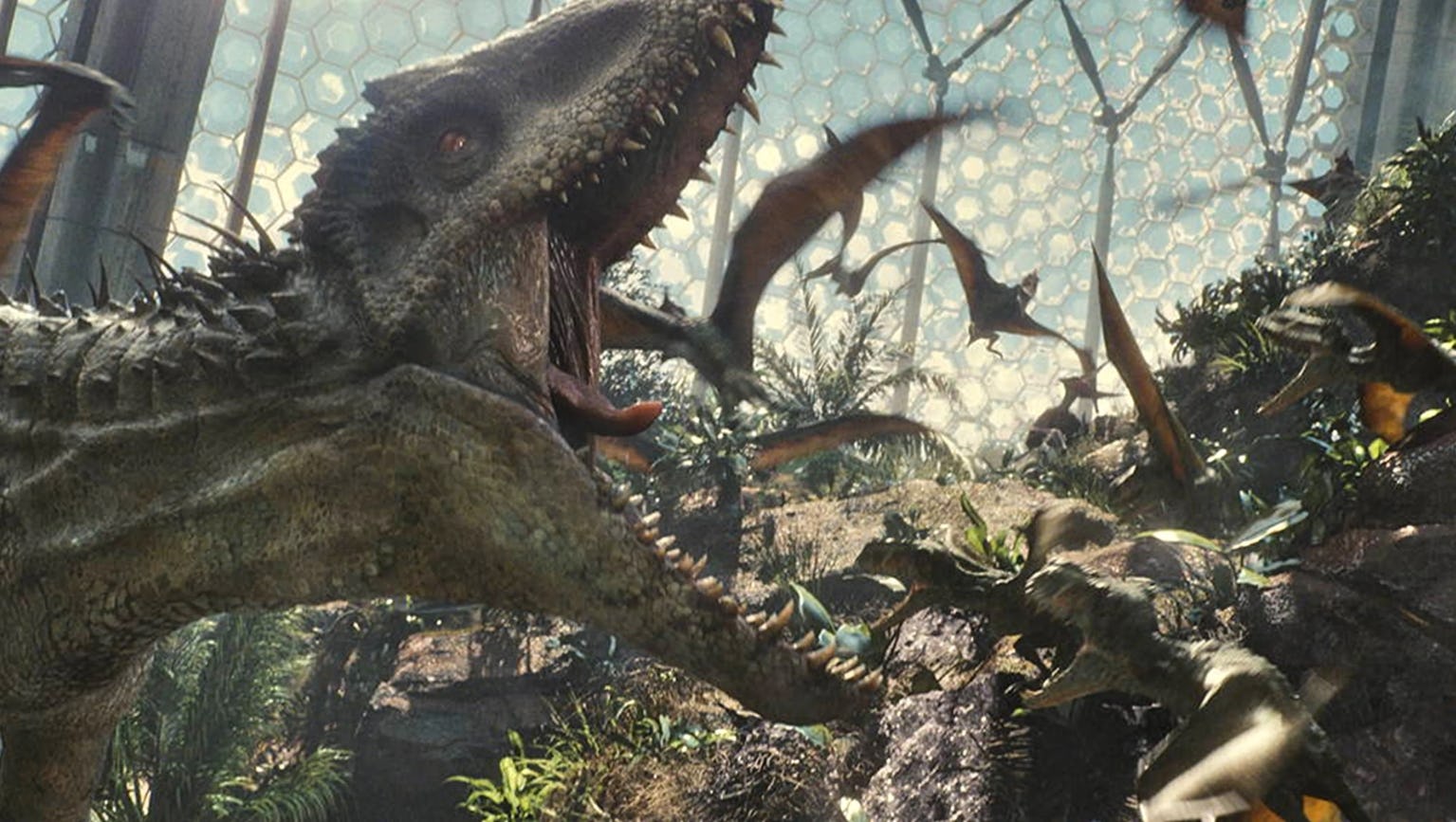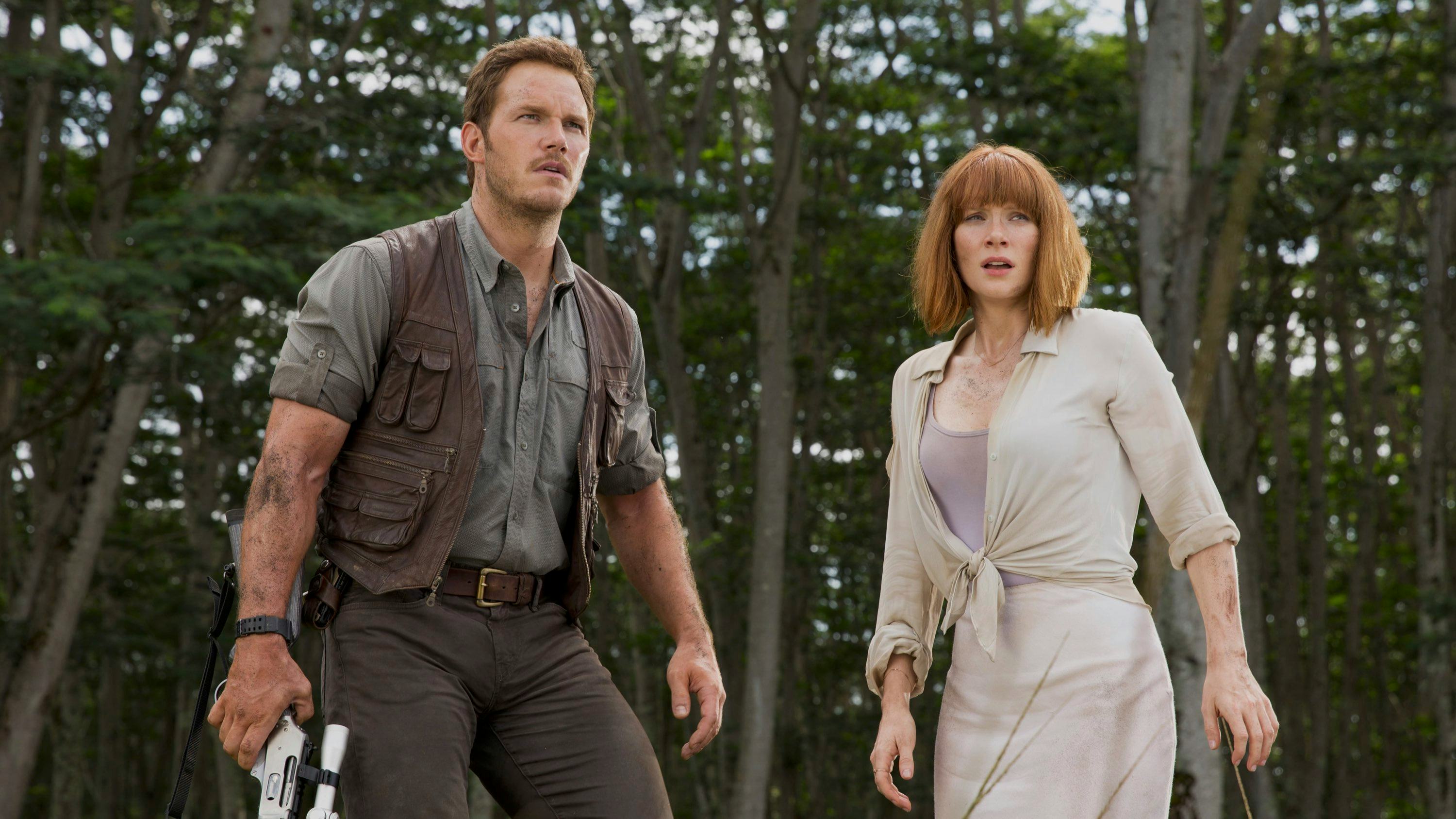
For as long as Hollywood has been churning out movies, its executives have been seeking a formula for success. Because movie-making is a collision of art and business, finding a sustainable approach that leads to major box office returns is easier said than done. Sometimes, though, the answer is depressingly straightforward.
Jurassic World hit theaters on this day in 2015, more than a decade after the original dinosaur trilogy had ended. The movie broke box office records and remains one of the highest-grossing in Hollywood history, despite the fact that there is absolutely nothing remarkable about it. Jurassic World promised audiences that it would remind them of Jurassic Park, but it didn’t promise to be better in any way. It was the harbinger of a Hollywood era designed around reminding you that movies used to be good.
The movie is essentially Jurassic Park blown outward. It’s set on the same island as the original, and for some reason, the powers that be have once again decided to open a theme park filled with dinosaurs. One of the core problems every Jurassic Park sequel runs into is that, once it’s been proven that trying to co-exist with dinosaurs is a bad idea, it seems unlikely we would try again. Jurassic World chooses to simply ignore this issue. The movie isn’t even all that interested in what might motivate the opening of Jurassic World. Money is the answer it arrives at, but as with everything else here, it lacks the original film’s complexity and shading.
Money, of course, is what drove the film’s creation, but at both the theme park and the theater, you might be perplexed as to what exactly they’re selling. Jurassic Park works because of the wonder and terror its dinosaurs induce, but it’s also careful to set up real, human stakes. Jurassic World isn’t interested in dinosaurs or people. It’s not a movie about what it would be like if dinosaurs co-existed with people, but about what it would be like to watch Jurassic Park again, but without Steven Spielberg’s expert hand or a trio of brilliant central performances.
The gambit worked, as all three World movies made plenty of money. A few months after Jurassic World opened, Star Wars: The Force Awakens did a more impressive job of reminding us why we all loved a particular franchise, and made even more money doing so. Still, it shared Jurassic World’s original sin, answering the question of why the movie exists with “because you liked it the first time.”

The decade since has brought us plenty of franchises that came back to life for no reason beyond their own popularity. It’s the same logic that has come to define Disney’s middling live-action remakes: “We trust you’ll show up because you loved the original cartoon.”
Jurassic World was far from the first big-budget movie to be uncertain of why it existed. What made it so noxious, though, was the way it seeded an entire decade in which the defining principle of Hollywood’s existence was nostalgia. Remember those old Spider-Man movies? We’ll show them to you again. Remember The Matrix? Remember Scream? Remember? Remember?
An exercise in nostalgia can have something interesting to say, or at least justify its existence by being pretty fun to watch. Just a few months before Jurassic World hit theaters, Mad Max: Fury Road reminded us that not all long-awaited sequels are destined to be disasters. Unfortunately, Jurassic World’s pale imitation of Jurassic Park proved to be more the rule than the exception. Its tremendous financial success was a sign to studios that they didn’t have to make movies good, just familiar. A decade later, we’re longing for a new formula.







